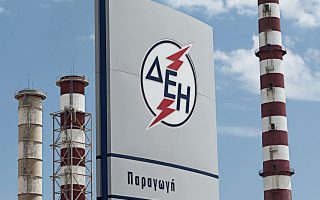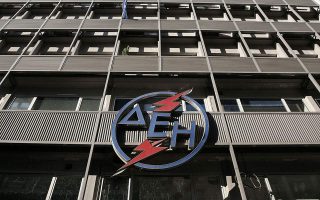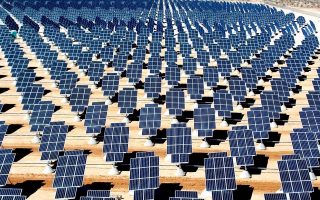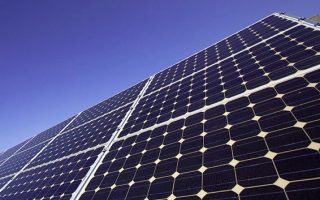Green energy meets hydrocarbons
HHRM CEO talks to Kathimerini about how Greece is transitioning to cleaner power production
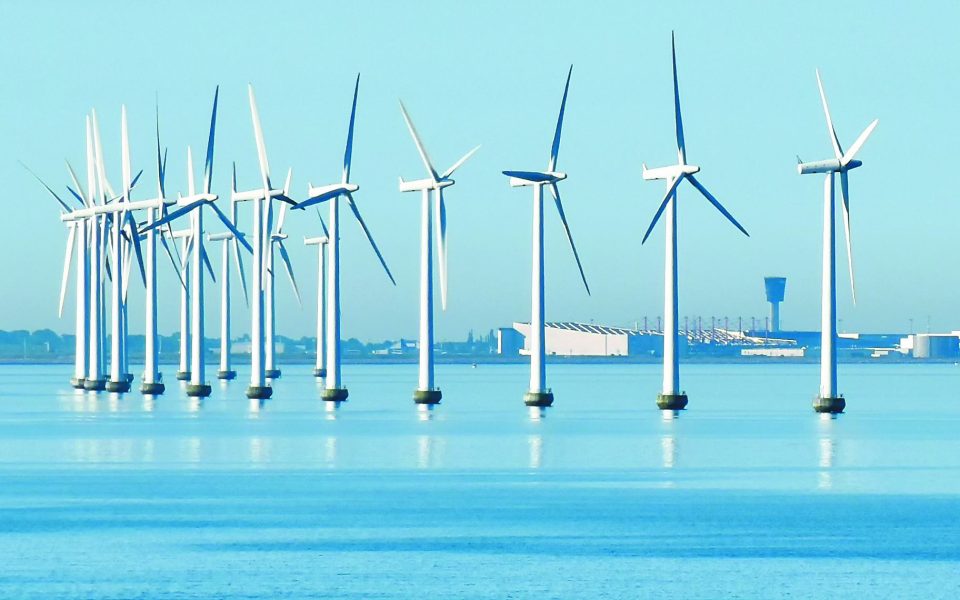
An attractive package is being prepared by Hellenic Hydrocarbon Resources Management (HHRM) which is aimed keeping companies involved in hydrocarbon exploration and exploitation interested in the domestic energy market. The company, which was established a decade ago with the aim of managing exploration and exploitation rights for domestic hydrocarbons, is now called upon to manage the exit from Greece of Spanish energy and petrochemical company Repsol, as well as the reduction of Total’s exposure to the Greek market, with its withdrawal from the Ionian region, and is seeking synergies in the green economy, combining natural gas extraction with the development of floating wind farms, the production of “blue” and “green” hydrogen and the capture and storage of carbon dioxide. (Ed. note: Blue hydrogen is created from fossil sources, where the carbon emissions are captured and stored, while green hydrogen is made from non-fossil sources.)
Moreover, the shift of the oil industry to the green economy is an international trend dictated by the energy transition. Funds which would have been channeled toward mining are now going to offshore wind farms, a technology that offers rapid penetration of the RES (renewable energy sources) market, as well as hydrogen, a market for which the European Union has committed 500 billion euros to speed up the construction of the necessary infrastructure.
What HHRM is trying to do, evaluating the shift from the oil sector to green energy, is to enhance the hydrocarbon projects in which large multinationals such as ExxonMobil and Total participate with a mixture of clean technologies that can be combined with the goals of energy transition.
HHRM CEO Aristofanis Stefatos, who has 15 years of experience in the Norwegian oil sector, describes to Kathimerini the model of a circular economy that, he says, if managed properly, will lay the foundations not only for the country’s energy independence but will also create prospects for energy and technology exports.
The new investment package that has been presented to the oil companies and has piqued their interest includes gas extraction with facilities that will run on electricity from floating wind turbines, which will be used to produce blue hydrogen and gradually to produce green hydrogen from RES and will involve the transformation of deposits into storage facilities for the capture of carbon dioxide, offering solutions to the country’s heavy industry which is burdened by the high cost of pollutants.
“Natural gas is the intermediate fuel for the transition to an economy of zero pollutants and is an integral part of the green economy because it creates synergies in construction and investment, to be able to implement the technologies of tomorrow, and these technologies of tomorrow, which in some “countries has already become today, are the floating wind farms and green and blue hydrogen, which when combined with the transformation of the deposits into permanent storage spaces for carbon dioxide, achieve zero pollutants,” explains Stefatos.
Regarding the impact of the project on investors, he notes, “We have already attracted top companies to Greece in this field, so we consider it an opportunity to build on these existing investors by attracting others, utilizing synergies with the respective Greek companies, HELPE (Hellenic Petroleum) and Energean, because it is a market that is being created. In other words, the investment opportunity is that we are facing a re-establishment of the energy industry and this creates very interesting synergies for domestic energy investors as well.”
He estimates that “if we marry our own energy players to foreign investors, they are more likely to move to other neighboring markets, because we are the first in the region to develop a mix of these energy technologies.” This investment model will not be limited to the existing areas that have been allocated for hydrocarbon exploration and exploitation.
Stefatos conveys the positive response of the oil companies, noting that investors recognize the comparative advantages of Greece, such as its geographical location, the rich wind potential of the Greek seas and the unexplored potential of natural gas deposits in combination with natural gas pipelines through which hydrogen can also be transported.
Based on an EU study, Greece’s marine wind potential is estimated at 263 gigawatts and has already attracted the interest of large European companies in the industry. The promising market for floating wind farms will open with the completion of the institutional framework in June, which will address critical issues such as the location, licensing and compensation of energy produced.
Total, which is the operator of the consortium with ΗELPE and ExxonMobil in the concessions off Crete, has agreed on the design and construction of a corresponding project (Masshylia), which also involves French company ENGIE, for the production of blue hydrogen from natural gas with simultaneous carbon sequestration and storage, as well as the production of green hydrogen from RES.
Total is transforming toward the European zero carbon targets for 2050, aiming to be among the top five producers of renewable energy sources in 2030. This goal will be achieved through targeted investments in offshore and offshore parks, and CO2 storage in parallel with the redistribution of its production from fossil fuels in favor of natural gas.
A similar strategy of turning to RES is being followed by all European oil companies under pressure from banks, investors and governments, sowing wind turbines from the North Sea to the Mediterranean and the US coast.

